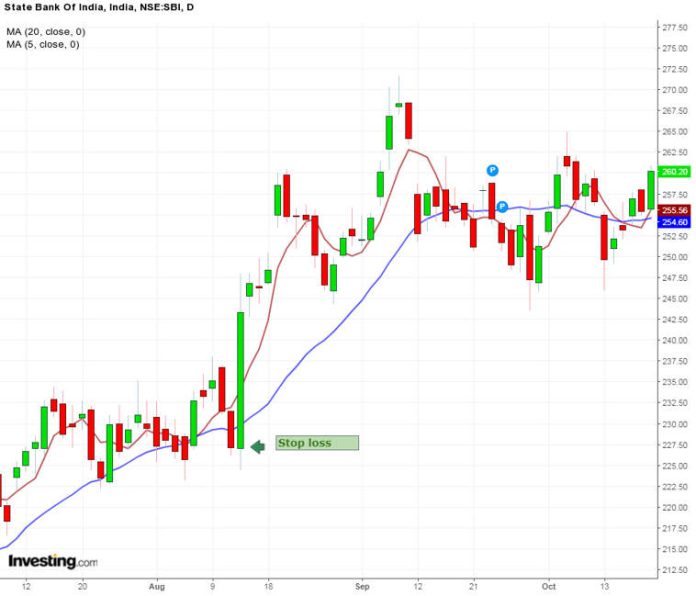While forex trading is a thrilling endeavour with the potential for significant gains, there are also inherent hazards involved. Every trader needs to understand the notion of “Stop Out,” which is one of the most essential parts. When a trader’s account goes below the required margin threshold, a scenario known as a “Stop Out,” open positions are automatically closed to limit further losses. Let’s examine Stop Out in Forex in more detail, along with its importance and valuable advice for preventing it.
What is Stop Out in Forex?
Stop Out is a crucial risk management tool brokers use to protect traders’ accounts against irrational losses. Leverage allows traders to control larger positions with less cash when they engage in Forex trading. This leverage, though, also makes prospective losses more significant. Brokers establish a minimum margin requirement that traders must meet to avoid losing more than their account balance.
A Stop Out is triggered if a trader’s equity (usually between 20% and 50% of the utilised margin) drops below that threshold. To release the utilised margin and stop future losses, the broker now automatically terminates some or all of the trader’s open positions. The purpose of this forced liquidation is to shield traders and brokers from substantial financial risks.
Forex traders who want to protect their accounts and limit potential losses must understand Stop Out and analyse the FX-List. Effective risk management is essential to prevent a Stop Out, including placing stop-loss orders and varying one’s portfolio.
Why is Stop Out Important?
Due to its function in protecting traders’ capital and promoting proper risk management, Stop Out is of utmost importance in the forex market. Leverage is used in forex trading, significantly increasing potential gains and losses. As a result, there is always a chance that traders will sustain substantial losses that could exceed the balance of their accounts.
The Stop Out mechanism serves as a safeguard against such unfavourable circumstances. Brokers can automatically close out positions when a trader’s equity drops below a certain barrier, often between 20% and 50%, by enforcing a minimum margin level that traders must maintain. This limits traders’ exposure to financial risks and potential debt by preventing traders from losing more money than they initially placed.
Additionally, Stop Out guarantees the overall stability and integrity of the Forex market. Without this risk management strategy, rash trading behaviour and significant losses could have negative effects on both traders and brokers, resulting in market instability and possible systemic problems.
How to Avoid Stop Out in Forex:
For traders to safeguard their funds, maintain account longevity, and have a fruitful trading career, avoiding stop-out in forex is essential. When a trader’s account equity falls below the necessary margin level, a stop out, also known as a margin call, takes place, automatically closing open trades to stop additional losses. Putting into practice the following tactics can make it easier for traders to avoid Stop Outs and deal with the difficulties of Forex trading:
Risk Management and Proper Leverage
Using solid risk management strategies is one of the most essential elements of Forex trading. Avoid using too much leverage in your trades since this can amplify both potential gains and losses.
When the market is terrible, using too thestyleplus much leverage can quickly wipe out your account balance. Expert traders frequently advise placing no more than 1% to 2% of your whole capital at risk in any one trade to provide a cushion against market volatility.
Set Stop-Loss Orders
Stop-loss orders should always be used when trading. A stop-loss order is a predetermined price level below which, if the market swings against you, your transaction will be instantly closed.
By placing stop-loss orders, you can ensure that you keep possible losses on each transaction to a minimum and keep them from rising above what you consider to be a manageable level. Stop-loss orders must be placed after thorough research and assessment of the market environment.
Diversify Your Portfolio
Do not invest all your money in a single asset class or currency pair. By distributing the risk, diversification lessens the impact that negative market movements will have on your overall account balance.
You can lessen the correlation between your holdings and lower the likelihood of suffering substantial losses simultaneously on all fronts by diversifying your portfolio and trading a variety of instruments.
Regular Monitoring
Keep an eye out and check your account frequently. The forex market is a fluid environment where mood and price movements can change quickly. You can discover potential hazards and make wise judgments by frequently evaluating your open positions. Avoid sticking to lost trades in the hopes of a turnaround, and be ready to alter or close positions if market conditions require it.
Avoid Emotional Trading
A common mistake in forex trading funnyjok is making decisions out of emotion. Gluttony and irrational trading might result from fear and greed. Create a thorough trading strategy that includes distinct entry and exit points, and be disciplined in following it.
Avoid trying to quickly make up losses by chasing them or doubling down on losing situations. Making judgments based on analysis and strategy will be easier for you if you can keep your emotions out of your trades.
Stay Informed
Keep abreast of current events and market developments that may have an impact on the forex market. Currency movements can be greatly influenced by economic statistics, geopolitical happenings, and central bank announcements. You can make better selections and adjust to shifting market conditions by being well-informed.
Conclusion
Stop Out is a risk-management strategy created to safeguard investors from irrational losses and preserve the reliability of the forex market. To prevent receiving a Margin Call, traders must be aware of how to Stop Out functions and use the proper risk management strategies. You may reduce the risks and have a more successful and sustainable trading trip in the fascinating world of Forex by using correct leverage, placing stop-loss orders, diversifying your portfolio, and exercising discipline.

